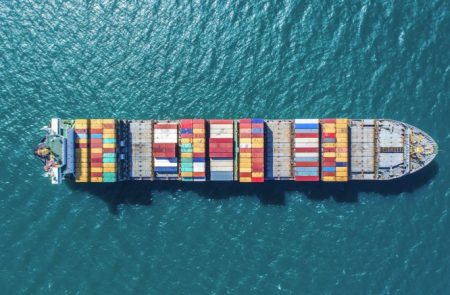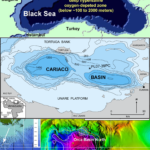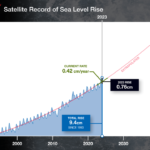February 25, 2019 – In the last week the International Maritime Organization (IMO) met in London to review the organization’s approach to carbon emissions considering that ships produced 1 billion tons of greenhouse gases to the atmosphere between 2007 and 2012 according to an International Council on Clean Transportation report published in October 2017. Data coverage for the years between 2013 and 17 had yet to be compiled, but in the executive summary, the report states emissions are up considering that marine fuel consumption across the globe increased by 7%. In terms of the industry’s contribution to global emissions, marine shipping in 2015 was responsible for 2.6% of the total, down from 3.5% in 2007, but in terms of the amount of gas, up by more than 4 million tons.
Three ship classes accounted for more than half of all marine carbon dioxide (CO2) emissions: 23% from container ships, 19% from bulk carriers, and 13% from oil tankers. The most CO2 emissions were attributed to ships flying the flags of Panama, China, Liberia, Marshall Islands, Singapore, and Malta representing 53% of the total. These six countries accounted for 66% of the global shipping fleet. Clearly flying flags of convenience has given maritime shipping companies a way to fly under the radar of pollution regulation from the countries these ships serve. But now the IMO is moving in the right direction.
At the meeting in London, the members agreed to under the watchful eye of the Clean Arctic Alliance, to implement a ban on using heavy fuels in the Arctic, and reduce black carbon emissions from ships. The ban which will be phased in between 2021 and 2023 will focus on the dirtiest heavy oil known as bunker fuel, used exclusively by marine ships.
Calling this fuel dirty is accurate. There is plenty of evidence of carbon black on snow and ice surfaces in recent years as more vessels ply the Arctic waters of the Northwest and Northeast Passages because of disappearing sea ice. For the indigenous people of the north, besides the air and land pollution from carbon black, it is the fear of oil spills and the harm these incidents will do that was part of the conversation in London last week. Heavy oil when spilled into a cold ocean is the most difficult of fossil fuel products to remediate including dispersion and recovery.
Stated Verner Wilson, Senior Oceans Campaigner for Friends of the Earth, and a member of the Curyung Tribe in Alaska, “The world must listen to the Arctic Indigenous Peoples who have known and lived in this region for thousands of years.”
The ban on the use of heavy fuel oil is being supported by Finland, Sweden, Norway, Denmark, Iceland, and the United States. Missing from the agreement are two prominent Arctic nations, Canada and Russia. Stated John Maggs, President of the Clean Shipping Coalition, in attendance at the London meeting, “Canada is still hemming and hawing about it, Russia is kind of negative, but they are not stamping their feet and saying no, no, no.”
Maersk, the world largest maritime shipping company, operating more than 780 vessels, announced in London its plan to achieve net zero CO2 emissions for its entire fleet by 2050. The company also reported it already has reduced carbon emissions by 47% since 2007. Maerk, a Danish company, acknowledged the need to accelerate its path to total decarbonization. To do this it intends to replace bunker fuels with hydrogen, biofuels, 21st-century sails, and other technological enhancements. With an average ship’s lifetime between 20 and 25 years. Maersk recognizes that it needs to be putting zero emission vessels on the ocean by 2030, beginning the complete phase-out of its existing fleet. That gives the company eleven more years to come up with a new maritime shipping paradigm and business model. Maersk’s executive knows this is an ambitious but necessary timeline to make the company’s future sustainable in a low-carbon world.















